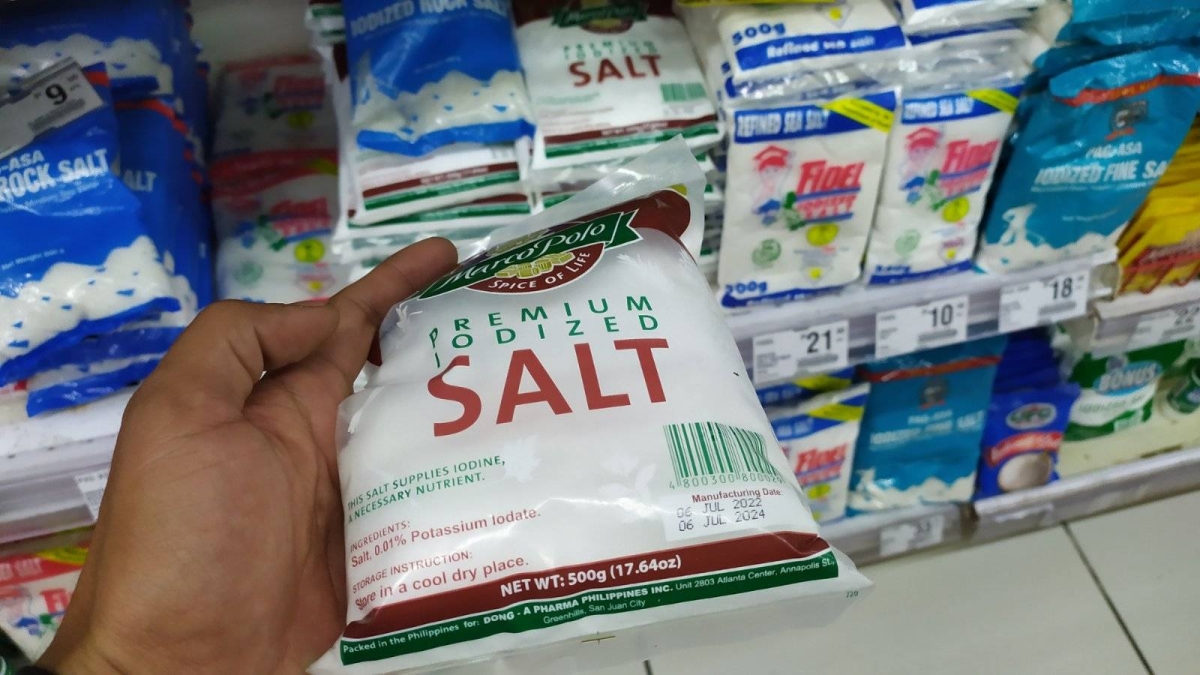The public is being urged to prioritize their iodine intake to prevent the development of goiter. This message aligns with this year’s goiter awareness campaign, themed “Leeg ay Kapain, Goiter ay Sugpuin: Isip ay Patalinuhin, Iodized salt ay Gamitin” (Take care of your neck, eliminate goiter: Enhance your knowledge, use iodized salt).
Dr. Nenuel Angelo Luna, an expert in internal medicine, endocrinology, diabetes, and metabolism, emphasizes that the recommended daily dietary allowance of iodine for adult men and women aged 19 and above is 150 micrograms. Pregnant and lactating women, on the other hand, are advised to consume 229 and 299 micrograms per day, respectively.
Goiter is the enlargement of the thyroid gland, a butterfly-shaped organ located in the lower front of the neck. The thyroid gland plays a crucial role in producing thyroid hormones, which are responsible for regulating weight, energy levels, internal temperature, skin, hair and nail growth, and metabolism.
The most common causes of goiter are iodine deficiency, autoimmunity, and nodules or swelling in the thyroid gland. Dr. Luna explains that iodine deficiency is the primary cause of goiter, not only in the Philippines but worldwide. The thyroid gland relies on iodine to produce an adequate supply of hormones. When the body lacks iodine, the thyroid gland compensates by working harder to produce more hormones, resulting in its enlargement.
In the Philippines, around 15 provinces have been identified as having the highest prevalence of iodine deficiency, according to the Philippine Thyroid Association. Furthermore, a study conducted by the Department of Science and Technology (DoST) revealed that out of 4,897 individuals tested for thyroid function, 8.5 percent showed abnormalities, such as subclinical hyperthyroidism or mild cases.
While goiter can affect anyone, it is more commonly found in women. The risk of developing goiter also increases with age and if there is a family history of the disease. In the DoST study, 8.9 percent of the 7,227 volunteers who participated in the survey and clinical examination tested positive for goiter.
Dr. Luna explains that goiter can be either asymptomatic or present with visible swelling at the lower front of the neck. Patients with hypothyroidism, which is the underproduction of thyroid hormones, often experience chronic fatigue, depression, and difficulty concentrating. On the other hand, patients with hyperthyroidism, which is the overproduction of thyroid hormones, may experience hyperactivity, increased anxiety, and irritability. Weight gain is commonly associated with hypothyroidism, while weight loss is a common symptom of hyperthyroidism.
It is crucial for individuals to be aware of the symptoms and risks associated with goiter. Regular consumption of iodized salt, which is fortified with iodine, can help prevent iodine deficiency and reduce the likelihood of developing goiter. By ensuring an adequate intake of iodine, individuals can maintain a healthy thyroid function and overall well-being.
Remember, taking care of your neck by prioritizing iodine consumption can go a long way in preventing goiter and promoting a healthy thyroid.







